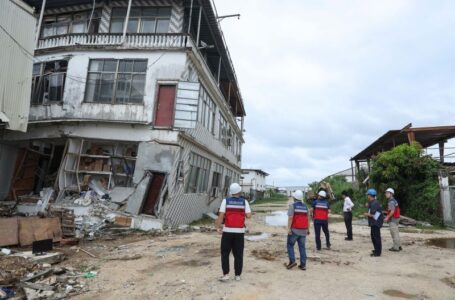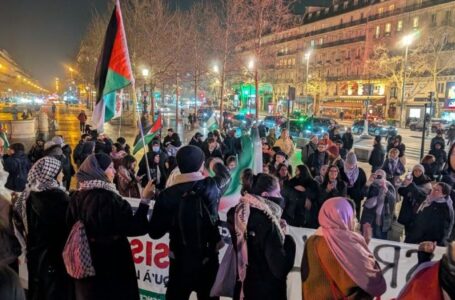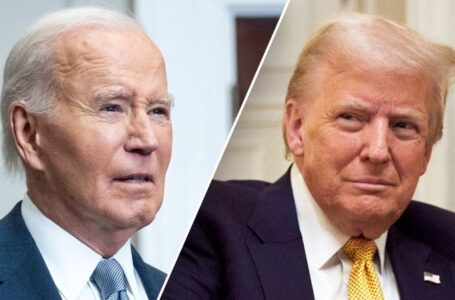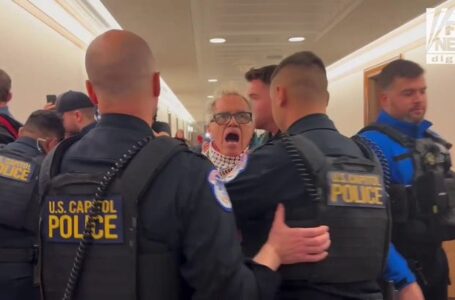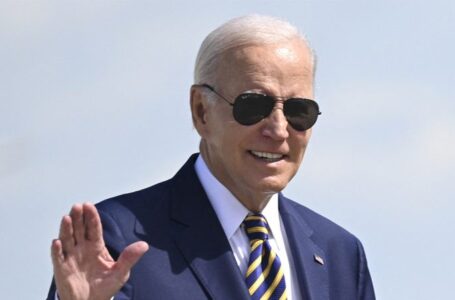India achieves first space docking, becoming fourth country to achieve major milestone
‘We will not enlist:’ Ultra-Orthodox in Israel vow to defy orders to serve in the military


As thousands of men hurried towards the main square in Jerusalem’s ultra-Orthodox neighborhood of Mea Shearim on Sunday for a protest, they passed signs declaring “war” on a contentious order from Israel’s highest court.
The Supreme Court ruling on June 25 said the Israeli government must enlist draft-age ultra-Orthodox (or Haredi) Jews into the military, reversing a de facto exemption in place since the country’s founding 76 years ago.
Sunday’s rally in Shabbat Square, which drew thousands, was to demonstrate against the decision, which another poster said had “thrust a sword” through the “beit midrash,” or Torah study hall.
The protest highlighted the fault line in Israeli society between ultra-Orthodox Jews, who Prime Minister Benjamin Netanyahu relies on to maintain his government, and other Israelis, many of whom believe that all Jewish citizens should serve in the military, especially during wartime.
Many Haredi men spend much of their early lives out of the workforce, instead studying at religious schools known as yeshivas that are partly funded through government subsidies.
For many Haredis, the idea that they would be pulled from studying scripture and drafted into Israel’s military is simply out of the question.
An arrangement made during Israel’s founding exempted several hundred Haredi men from conscription. However, the community has since grown exponentially, allowing tens of thousands of ultra-Orthodox men to now avoid the draft.
“We will not enlist,” said Yosef, 22, who traveled to the protest from his home in Beitar Illit, a large Haredi settlement in the occupied West Bank.
“Since the beginning of the state (of Israel), we have not enlisted… Now they want to make us (serve) by force. It will never work,” he said. “In a democratic state there is not much they can do besides put us in prison. We are not afraid of prison. We laugh about prison… and the more people that go into prison, the more demonstrations there will be in the country.”
As Yosef spoke, he looked up at a group of boys climbing a ladder to a nearby lamppost to hang a sign that read: “We will not enlist in the army.”
“We can’t watch as they tear the Torah to shreds,” said another man, who spoke on the condition of anonymity, due to the cultural norms of his community, some of whom are not open to speaking to the press. “We can’t be quiet. The High Court, the government, all the Knesset (parliament)… they are looking for ways for compromise and to send Haredi boys to be destroyed. We will die rather than be enlisted.”
The clashes between some protesters and police following the gathering in Mea Shearim underscored the depth of emotion in the ultra-Orthodox community, many of whom believe that serving in the military is incompatible with their way of life.
Some ultra-Orthodox neighborhoods like Mea Shearim shun modern technology. A man at Sunday’s protest held a placard stating: “Life is happy only without internet and films.”
Five people were arrested in confrontations after some threw rocks, set trash cans on fire and attacked the car of Housing Minister Yitzhak Goldknopf, himself a Haredi Jew.
‘God is going to help them’
He said that for many Haredis, the court’s decision won’t change their stance, adding that many said they would “need to starve because they’re not going to have money to buy food,” referring to the court’s edict that the government must withdraw funding from any yeshivas whose students do not comply with draft notices.
“They still refuse to join the Israeli army. They (say they) are just not worried about it. And they trust in God, that God is going to help them,” said Farber, who writes for the ultra-Orthodox Hadrei Haredim website.
Given that most other Israeli Jews are required to serve in the military, the Haredi exemption, “while relying on disproportionate government subsidies,” has fostered significant resentment among non-Haredi Jews, according to the Israel Policy Forum.
The issue came to a head after Israel invaded Gaza following Hamas’ October 7 attack, when the IDF initiated the largest mandatory military mobilization since the 1973 Arab-Israeli war.
Some lawmakers in Netanyahu’s own coalition have joined the opposition in pushing for the Haredi community to enlist.
Despite the court ruling, the military is unlikely to immediately call-up all draft-age Haredi men. The Attorney General’s office said the IDF “had committed to recruiting 3,000 yeshiva students in the current recruitment year.”
Amichai Milici, a 45-year-old army veteran and father of seven who now studies full-time at a yeshiva, said the IDF isn’t ready to absorb more ultra-Orthodox men yet.
He insists that any man who wants to study the Torah should remain exempt from military service, arguing that religious studies and the defense of Israel are intertwined and essential for the nation’s well-being.
“The study of the Torah is central to the existence of the Jewish people,” he said. “The Jewish need the army and need the Torah… The Torah is giving power to the soldiers, and the soldiers are giving power to the Torah.”
Rabbis losing influence
Many fear that mass enlistment could change the way of life in their insular neighborhoods.
Farber, the Haredi journalist who once served in the IDF, said ultra-Orthodox rabbis may be worried about losing their influence.
“The Haredi leaders, spiritual leaders… are very, very afraid that they are going to see thousands of young Haredi boys in uniform in (ultra-) Orthodox neighborhoods,” he said. “They are afraid that being a soldier in the Haredi community will become something normal. And if you go into the IDF, you (might) start getting different ideas,” he said. “You start opening your head to other opinions… and nobody’s going to listen to the rabbis anymore.”
Netanyahu’s Likud party said in response to the Supreme Court ruling that it hoped to pass a “historic conscription law” which would “significantly increase the recruitment rates” of ultra-Orthodox men but also “recognize the importance of Torah study” — raising the possibility of the exemption continuing for a smaller number of yeshiva students.
“In terms of legislative process (we are) stuck,” the source, who spoke on the condition of anonymity in order to discuss sensitive political matters candidly, said. “I’d be surprised if they (the Ministry of Defense) forcefully tried to recruit people against their will, even though it’s the law. But it puts them in a very difficult spot now because the court ruling was so clear.”
The source said it was unclear what would happen to draft-dodgers. Prison is the final step in a process that starts with denying passport issuances and holding back benefits.
“So it could be that we see that sort of process for a large number of ultra-Orthodox men. How much that impacts their lives, I don’t know.”


